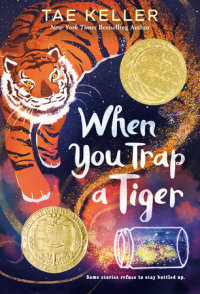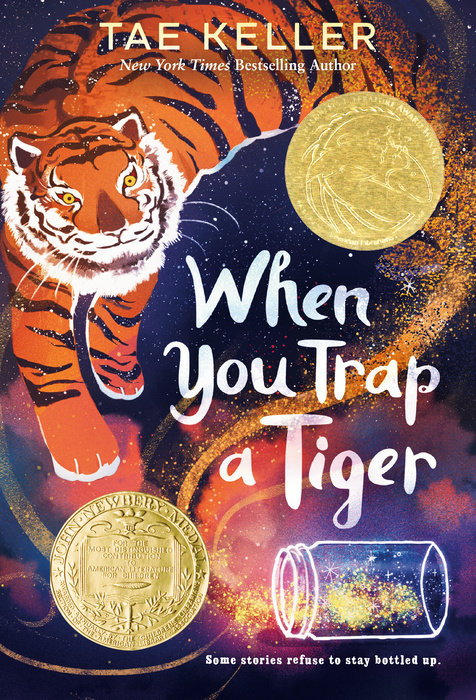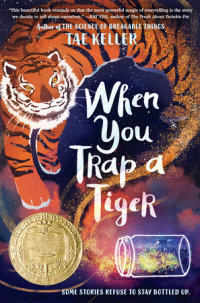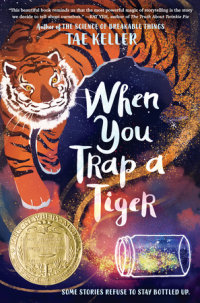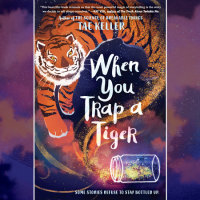1
I can turn invisible.
It’s a superpower, or at least a secret power. But it’s not like in the movies, and I’m not a superhero, so don’t start thinking that. Heroes are the stars who save the day. I just—disappear.
See, I didn’t know, at first, that I had this magic. I just knew that teachers forgot my name, and kids didn’t ask me to play, and one time, at the end of fourth grade, a boy in my class frowned at me and said, Where did you come from? I don’t think I’ve ever seen you before.
I used to hate being invisible. But now I understand: it’s because I’m magic.
My older sister, Sam, says it’s not a real supersecret power—it’s just called being shy. But Sam can be rude.
And the truth is, my power can come in handy. Like when Mom and Sam fight. Like right now.
I wrap myself in invisibility and rest my forehead against the back-seat window, watching raindrops slide down the side of our old station wagon.
“You should stop the car,” Sam says…
1
I can turn invisible.
It’s a superpower, or at least a secret power. But it’s not like in the movies, and I’m not a superhero, so don’t start thinking that. Heroes are the stars who save the day. I just—disappear.
See, I didn’t know, at first, that I had this magic. I just knew that teachers forgot my name, and kids didn’t ask me to play, and one time, at the end of fourth grade, a boy in my class frowned at me and said, Where did you come from? I don’t think I’ve ever seen you before.
I used to hate being invisible. But now I understand: it’s because I’m magic.
My older sister, Sam, says it’s not a real supersecret power—it’s just called being shy. But Sam can be rude.
And the truth is, my power can come in handy. Like when Mom and Sam fight. Like right now.
I wrap myself in invisibility and rest my forehead against the back-seat window, watching raindrops slide down the side of our old station wagon.
“You should stop the car,” Sam says to Mom.
Except Sam actually says this to her phone, because she doesn’t look up. She’s sitting in the passenger seat with her feet slammed against the glove compartment, knees smashed into her chest, her whole body curled around her glowing screen.
Mom sighs. “Oh, please, we don’t need to stop. It’s just a little rain.” But she ticks the windshield wipers up a notch and taps the brakes until we’re going slug-slow.
The rain started as soon as we entered Washington State, and it only gets worse as our car inches past the hand-painted welcome to sunbeam! sign.
Welcome to Halmoni’s town, a town of nonstop rain, its name like an inside joke.
Sam smacks her black-painted lips. “K.”
That’s all. Just one letter.
She tap-taps her screen, sending bubbles of words and emojis to all her friends back home.
I wonder what she’s saying in those messages. Sometimes, when I let myself, I imagine she’s writing to me.
“Sam, can you at least try to have a good attitude about this?” Mom shoves her glasses up on her nose with too much force, like her glasses just insulted her and it’s personal.
“How can you even ask me that?” Sam looks up from her phone—finally—so she can glare at Mom.
This is how it always starts. Their fights are loud and explosive. They burn each other up.
It’s safer to keep quiet. I press my fingertip against the rain-splattered window and draw a line between the drops, like I’m connecting the dots. My eyelids go heavy. I’m so used to the fighting that it’s practically a lullaby.
“But, like, you realize that you’re basically the worst, right? Like, this is actually not okay—”
“Sam.” Mom is all edges—shoulders stiff, every muscle tensed.
I hold my breath and think invisibleinvisibleinvisible.
“No, seriously,” Sam continues. “Just because you randomly decided that you want to see Halmoni more, that doesn’t mean we want to uproot our entire lives. I had plans this summer—not that you care. You didn’t even give us fair warning.”
Sam’s not wrong. Mom told us only two weeks ago that we were leaving California for good. And I’ll miss it, too. I’m going to miss my school, and the sunshine, and the sandy beach—so different from the rocky coast at Sunbeam.
I’m just trying not to think about that.
“I thought you should spend more time with your grandmother. I thought you enjoyed that.” Mom’s tone is clipped. The rain has gotten heavier, and it sucks up her focus. Her fingers white-knuckle the steering wheel. None of us like the idea of driving in this weather, not after Dad died.
I concentrate on the steering wheel and squint a little, sending safety vibes with my mind, like Halmoni taught me.
“Way to deflect,” Sam says, tugging at the single streak of white in her black hair. She’s still angry, but deflated a little. “I do enjoy spending time with Halmoni. Just not here. I don’t want to be here.”
Halmoni’s always visited us in California. We haven’t been in Sunbeam since I was seven.
I gaze out the windshield. The landscape that slips by is peaceful. Gray stone houses, green grass, gray restaurants, green forest. The colors of Sunbeam blur together: gray, green, gray, green—and then orange, black.
I sit up, trying to make sense of the new colors.
There’s a creature lying on the road ahead.
It’s a giant cat, with its head resting on its paws.
No. Not just a giant cat. A tiger.
The tiger lifts its head as we approach. It must have escaped from a circus or a zoo or something. And it must be hurt. Why else would it be lying out here in the rain?
An instinctive kind of fear twists in my stomach, making me carsick. But it doesn’t matter. If an animal’s hurt, we have to do something.
“Mom.” I interrupt their fight, scooting forward. “I think . . . um . . . there’s . . .”
Now, a little closer, the tiger doesn’t look hurt. It yawns, revealing sharp, too-white teeth. And then it stands, one claw, one paw, one leg at a time.
“Girls,” Mom says, voice tense, tired. Her annoyance with Sam rarely bleeds onto me, but after driving for eight hours, Mom can’t contain it. “Both of you. Please. I need to focus on driving for a moment.”
I bite the inside of my cheek. This doesn’t make sense. Mom must notice the giant cat. But maybe she’s too distracted by Sam.
“Mom,” I murmur, waiting for her to hit the brakes. She doesn’t.
Sometimes the problem with my invisibility is that it takes a little while to wear off. It takes a little while for people to see me and hear me and listen.
Listen: This isn’t like any tiger I’ve seen in a zoo. It’s huge, as big as our car. The orange in its coat glows, and the black is as dark as moonless night.
This tiger belongs in one of Halmoni’s stories.
I lean forward until the seat belt slices into my skin. Somehow, Sam and Mom continue to bicker. But their words become a low hum because I’m only focused on—
The tiger lifts its enormous head—and it looks at me. It sees me.
The big cat raises an eyebrow, like it’s daring me to do something.
My voice catches in my throat, and I stumble over my words. They come out choked. “Mom—stop.”
Mom’s busy talking to Sam, so I shout louder: “STOP.”
Finally, Mom acknowledges me. Eyebrows pinched, she glances at me in the rearview mirror. “Lily? What’s wrong?”
She doesn’t stop the car. We keep going.
Closer—
closer—
And I can’t breathe because we’re too close.
I hear a thud and I squeeze my eyes shut. The inside of my head pounds. My ears ring. We must have hit it.
But we keep going.
When I open my eyes, I see Sam, arms folded across her chest, phone resting by her feet. “It died,” she announces.
My pulse is a wild beast as I scan the road, searching for horrors I don’t want to see.
